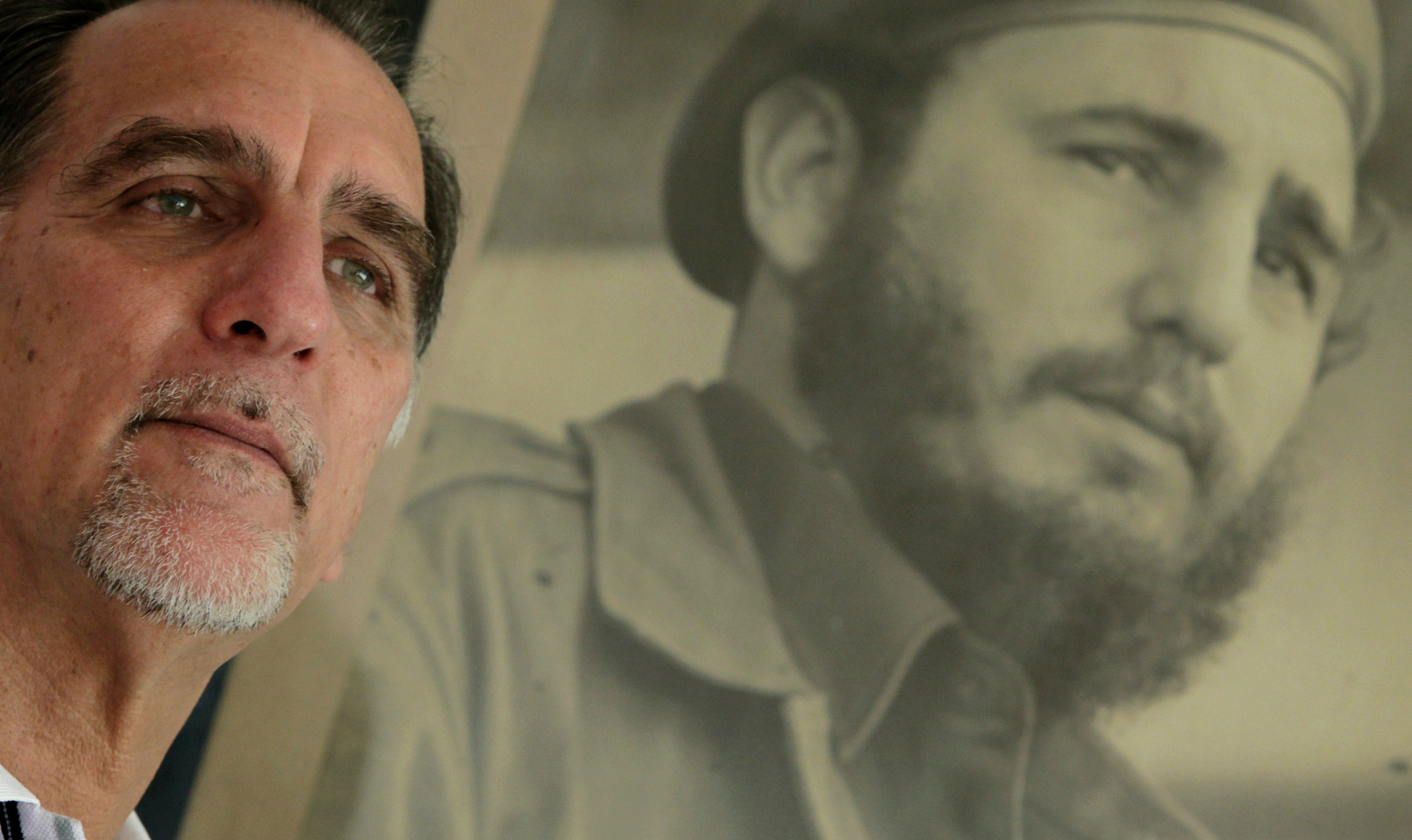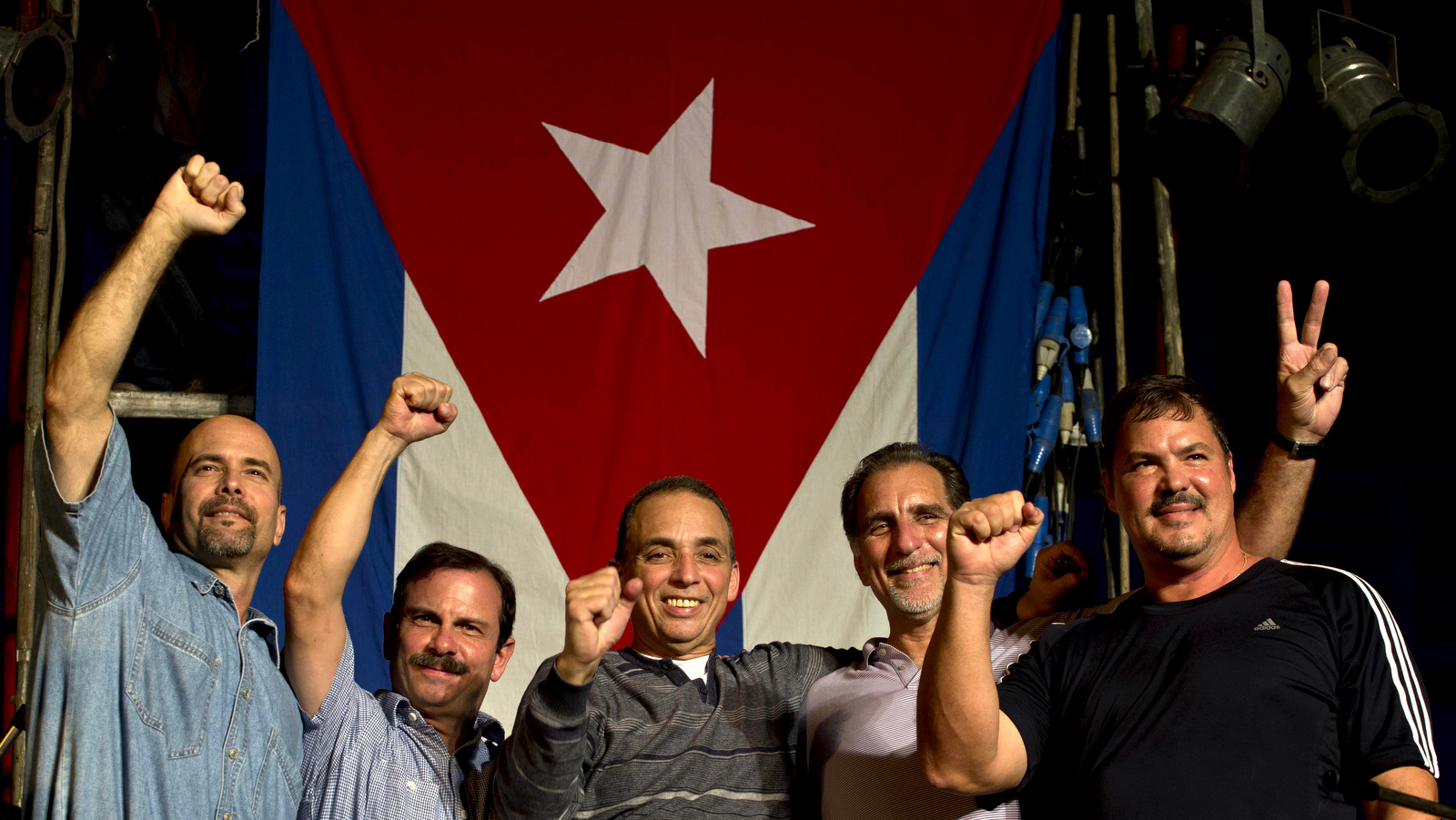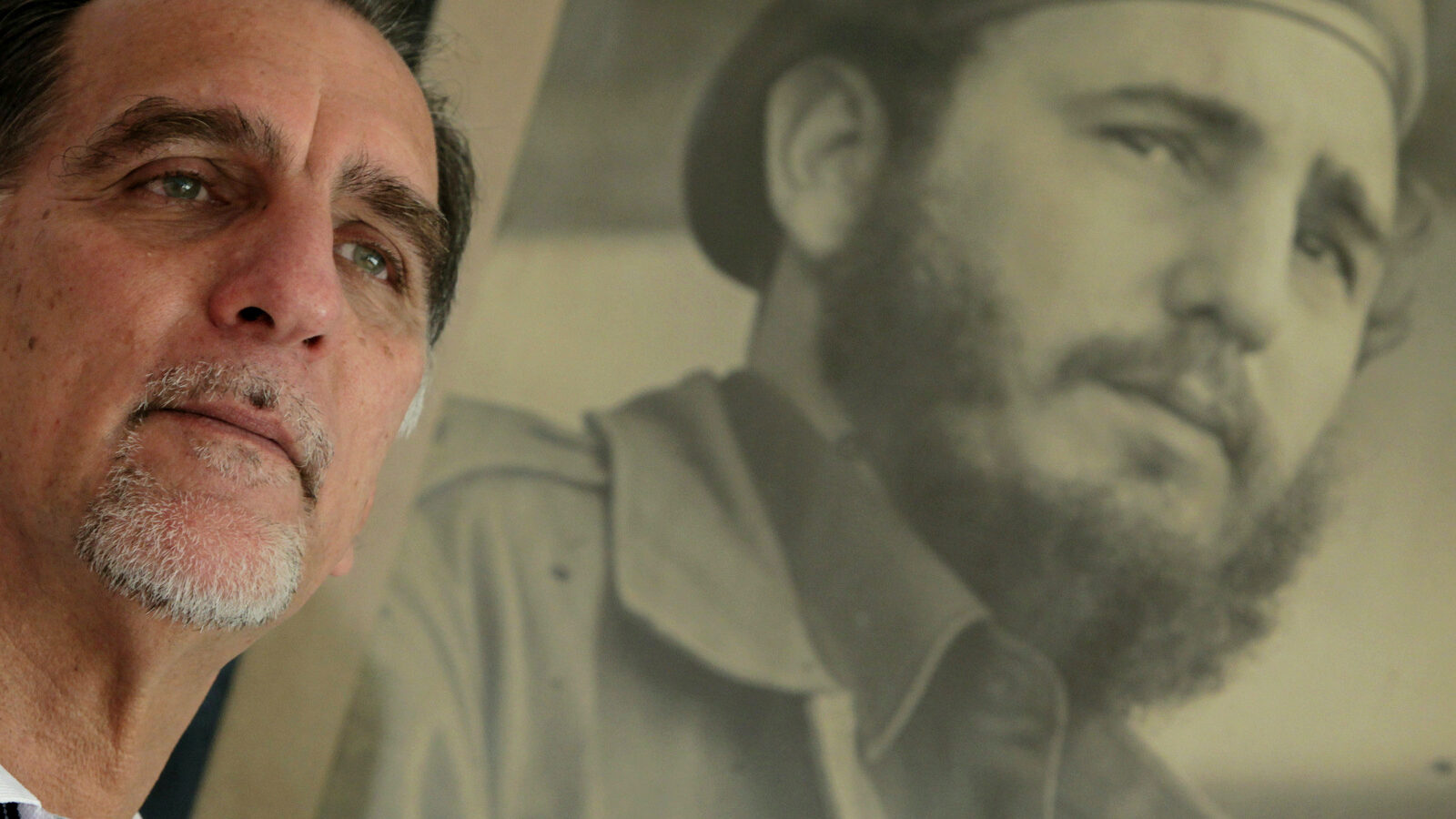
HAVANA, Cuba — The December 2014 announcement that Cuba and the United States would be normalizing relations was met with both eagerness and suspicion. The diplomatic negotiations which led to the release of the remaining three members of the Cuban Five being held in the U.S. in exchange for USAID subcontractor Alan Gross and an unidentified U.S. spy, also provided the foundations upon which both countries agreed to embark on a new series of diplomatic discussions.
Following a State Department review in April 2015, Cuba was removed from the State Sponsor of Terrorism list — a scheme concocted by the U.S. against Cuba due to the island’s support for revolutionary resistance in South America and Africa. Iran, Sudan and Syria remain on the list.
In August 2015 the U.S. opened an embassy in Havana, ending the historical diplomatic rupture which escalated to U.S. covert and overt actions against Cuba, including over 630 attempts to assassinate former Cuban leader Fidel Castro. In his address at the flag raising ceremony at the embassy, Secretary of State John Kerry alluded to the perpetual rhetoric of “democratic transition” in Cuba. Noting that “Cuba’s future is for Cubans to shake,” he continued:
“But the leaders in Havana – and the Cuban people – should also know that the United States will always remain a champion of democratic principles and reforms. Like many other governments in and outside this hemisphere, we will continue to urge the Cuban Government to fulfill its obligations under the UN and inter-American human rights covenants – obligations shared by the United States and every other country in the Americas.”
Yet Kerry failed to acknowledge the United States’ historical and current in role in shaping international dissonance under the guise of democracy.
Meanwhile, as the U.S. wielded its soft power with regard to Cuba, it was also striking against Venezuela with aggressive attempts to undermine the Bolivarian Revolution. The U.S. took part in attempts to sabotage Venezuela, aided in orchestrating a coup against President Nicolás Maduro, and provided political and financial support to the Venezuelan opposition.
The United States’ different attitudes toward these two countries can be viewed as subjugation tactics. The imperialist aggression in Venezuela is reminiscent of the tactics used in Chile, which led to the downfall of democratically-elected socialist President Salvador Allende and the backing of Augusto Pinochet’s brutal dictatorship. Cuba, on the other hand, has endured over 50 years of persistent U.S. aggression.
Following terror attacks against Cuba planned by former CIA agents Orlando Bosch and Luis Posada Carriles, exiled right-wing dissidents embarked upon a series of terror activities targeting tourist sites in Cuba. The Cuban Five were sent to Miami in order to monitor and prevent terror attacks from materializing on the island. Evidence gathered by the Five was eventually passed on to the U.S., which retaliated by arresting and imprisoning the Cuban counter-terror agents in 1998.

On Oct. 7, 2011, René González was the first of the Five to be released. However, additional punitive measures were imposed upon him, with the court mandating a three-year probationary period to be served in the U.S. He was finally granted permission to remain in Cuba after a court-approved visit to attend his father’s memorial service in 2013.
Given the dangerous yet futile attempts of the U.S. to sabotage the socialist movement in Cuba, the alternative option for the U.S. is to infiltrate diplomatically and establish a presence that would facilitate any hypothetical erosion of the Cuban Revolution.
Speaking to MintPress News, González outlines where the U.S. and Cuba diverge politically and in terms of their respective goals for the island nation. Now, González says, the Cuban struggle revolves around questions of how to hold onto the values of the revolution, maintain ties with an imperialist power that is hostile to Cuba, and ensure the survival of socialism in the country.
MintPress News (MPN): Now that the [remaining three members of the] Cuban Five have been released upon diplomatic negotiations between Cuba and the U.S., in what manner will you be continuing the anti-imperialist struggle? Will any future activity — particularly in relation to internationalist solidarity — be hindered by the agreement?
René González (RG): First of all, we have to remember that the agreement between the U.S. and Cuba on December 17, as well as any other step taken by one or both parties after that, has never implied a concession by the Cuban government. The Cuban government has made it crystal clear that our sovereignty and policies are not on the table, in the same way that we don’t impose on the U.S. our views regarding their sovereignty and policies.
International solidarity is a two-way relationship, in which we give solidarity and receive solidarity in return. The struggle for the Five, to give an example, in great part is the result of the answer by millions of people expressing their solidarity with the Cuban people. Most of the peoples of the world share the common destiny of being subjected to exploitation. All of them will be [among] the victims as long as somebody else is being victimized, even if at any given time they are not subjected to direct aggression. As long as somebody is victimized by imperialism, all of us are victims.
That conscience is ingrained in our internationalism, and is at the essence of our policies of international solidarity. It won’t change just because we establish a normal relationship with the U.S. or any other government.
MPN: There have been a lot of conflicting opinions with regard to normalizing ties with the U.S. How does this step fit in with the values of the Cuban Revolution?
RG: We should acknowledge that the normalization of ties with the U.S. is a real conflicting event, so it shouldn’t be surprising that it brings about conflicting opinions.
As a matter of fact, the goals of both parties — the U.S. versus the Cuban government — are by nature in conflict. They see this approach as a better way to restore capitalism and their hegemonic relationship with Cuba, having failed after more than five decades of aggressive policies. We see it as an opportunity to overcome a blockade and policies of aggression which have hindered our capacity to build our socialism.
But when it comes to the values of the Cuban Revolution, one of those values is the principle of having normal relations with the rest of the world, with acceptance of every nation’s system of government and their sovereignty. It wasn’t Cuba that imposed this estrangement between the two countries, but the U.S. government. We would have chosen the path of peaceful coexistence to solve our differences if it was up to us.
So, having a normal relationship with a country which differs from our political system is in agreement with our values. As a matter of fact, Cuba has diplomatic relations with almost every country in the world, regardless of their political system.
That said, we cannot ignore the fact that a relationship with such a big power committed to subverting our socialism, will incur risks regarding our value system. They will try to impose their system of values on us, and for that goal they rely upon lots of resources. It will undoubtedly become a challenge to protect our values under such economical, political and ideological pressures. Awareness of the risks involved is the first defense, but we will have to be clever to transform these events into opportunities and avoid the risks involved, including the erosion of our value system.
MPN: To what extent do you think the US government will cooperate with Cuban requests — particularly an end to the [U.S.] military occupation of Guantánamo?
RG: The two countries have engaged in a long process which will take time to unfold. The U.S. government will try to use any resource as a bargaining chip on this process, and it includes any of the tools now in place as part of the policies of the last half-century. The occupation of Guantánamo, being one of those tools, will be part of that give and take.
I don’t believe that the U.S. government will make any concession out of goodwill. The process of dismantling the policies of the last 57 years will be conditioned by their pragmatic approach to international relations, which has a lot to do with a costs versus benefits analysis. What I hope is that as the process advances, the political costs of keeping in place those instruments of aggression will eventually increase, pushing them in the only direction which is historically right: the lifting of any barrier to the normalization of relations with Cuba, which includes giving back the territory illegally occupied in Guantánamo.
So, when it comes to those issues, our most valuable asset is history itself. We will have to be patient and approach them with a long-term vision. The U.S. base at Guantánamo has little or no practical military use on the age of aircraft carriers. It is kept in place only as part of putting salt on the wounds they have been inflicting upon the Cuban people. Eventually it will be more costly for them, both politically and economically, to keep it in place. Of course, our prerogative is to do everything possible to increase their political costs for keeping that occupation.
MPN: What is the general reaction of Cubans to rapprochement with the U.S.?
RG: I would describe it as cautious optimism. Most of the Cuban population was born and has lived under the blockade and we want it lifted. We want to be allowed to prove that socialism in Cuba is a viable option and the answer to our future. We have fought for that right for 57 years, and view a thaw in the conflict with the U.S. as a triumph of our resistance and determination. We have reasons to celebrate that rapprochement.
On the other hand, we understand the risks and are aware of the U.S. government’s intentions. We know that if things are not done right they might come up with their goal of restoring capitalism in Cuba. We now have to face two challenges as never before: the new imperialist policies, now more subtle and sophisticated, and our own weaknesses and limitations. We look at the future with hope, but at the same time understand that there are big risks associated with our shortcomings, on one hand, and with the policies by the U.S. government, on the other. It is up to us to overcome our shortcomings to prevent their policies from prevailing.
MPN: The U.S. is seeking to establish relations with Cuba and at the same time interfering in Venezuela. How does Cuban internationalism view this contradiction?
RG: I don’t see it as a contradiction at all. It is consistent with the nature and ways of imperialism. Both policies seek the same outcome that the U.S. government has sought on his dysfunctional relationship with Latin America: to prevent the materialization of the common destiny envisioned by Bolivar and Martí, Fidel and Chavez.
The Cuban Revolution represents the moral compass to the path to that destiny, and the policies of the U.S. government toward Cuba aim to divert that compass from its course. By engaging the Cuban society they seek to subvert our values, and with it kill the example and inspiration that the internationalism and solidarity of the Cuban Revolution embodies for the peoples of Latin America. This approach implies a more soft relation with Cuba.
By contrast, the relationship with Venezuela aims to the destruction of the economic sustenance of the Bolivarian Alternative for the Americas, by launching a war of attrition against the Venezuelan people, which relies heavily on an economic war which cannot be embedded in subtleties. There are no pretensions here. Imperialism relies upon its power to impose hardships on the Venezuelans, as they did before regarding the Cubans.
As for us, again, our solidarity with the Bolivarian Revolution is not negotiable. We welcome better relations with the U.S., but it won’t happen if it means turning our backs on those who, during our worst period, were friends with the Cuban people.


